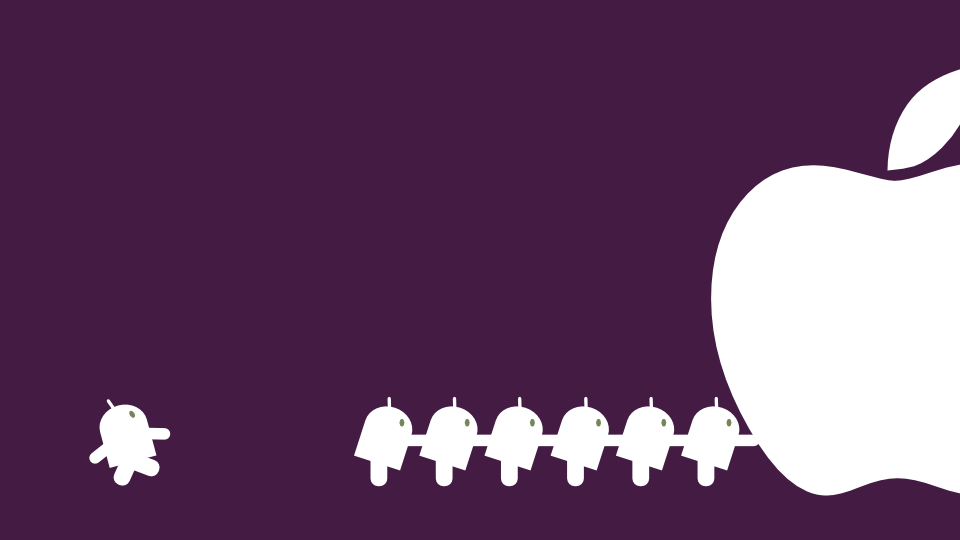The War For Android Is Over
We’ve won. What’s next?
“Linux? Hahaha. Can’t you afford a real operating system (Mac OS X) and professional software (Photoshop)?”
Fellow designers smirked and shook their heads a couple of years back. They were making jokes about me trying to create decent artwork and assets with open source software. My motivation of using FOSS software on a FOSS operating system didn't align with their definition of quality work. I don’t mind if the joke’s on me every once in a while, but being called unprofessional simply due to my choice of software was painful.
Fast-forward to today: if we consider its broader scale, Linux is now powering the most widespread mobile OS, has broken crowdfunding records and is gearing up to take over living room entertainment. Now, people yet unfamiliar with the OS ask questions out of curiosity rather than waiting for an opportunity to deliver the next punchline.
The same thing happened with Android, but on a much more dramatic scale. Having been the underdog for its first two years, hardly anybody in the professional industry cared about the OS. Apple’s iPhone was the cool thing to have and every business guy or designer was treating their Blackberries in for one. So, here too, users started fighting over acceptance and dominance of their favorite OS.
It was to become quite a long battle. Every iteration of Android lagged behind the elegance of its iOS counterpart. The implementation felt slow, most of the hardware was underpowered — the whole system seemed to follow no clear, recognizable direction for most people outside of Google. Every little step of the community was countered by cynical media coverage and pointing fingers by the self-proclaimed “professionals”.
With the introduction of Android 4.0, things changed. Suddenly, there was a unique look and feel to the OS, coupled with a forward-looking vision, and backed up by a solid set of hardware. Press and fans hailed the progress, and even infamous enemies became supporters of the green robot. In merely a year, the underdog became a major player in the industry — even the driving force depending on the numbers you compare.
While technology changes extremely fast, human emotions need a lot of time to adapt. One year the Android fans were bullied by the iOS crowd, desperately trying to fight back with hardly a valid argument. The next year they were the kings of the playground, but still as angry as ever. There will be no love lost between Android and iOS, but you'll have to admit: The war is over.
A look back in history helps to understand the connections, to account for what has happened, and what's to be learned for the future — nothing more, nothing less. While I have to admit I’m quite satisfied with believing in the underdog and my vision for FOSS turning out favorably, it’s time to smoke the peace pipe and move on. Because the next squabbles are bubbling up. I’m not even talking about Android against Windows Phone, nor iOS versus Ubuntu Touch.
Put on your armor: the arguments between native development and the web are heating up. And yes, sometimes we have to voice strong opinions and fight to even find out what’s going on.
Ready to pick sides? Me neither — for now.


